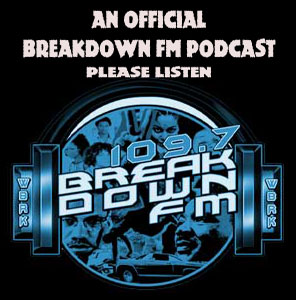We got a chance to catch up with Sunspot Jonz of Mystic Journeymen and front man for Living Legends to talk about his latest venture. Many have long know Jonz as a dope emcee who has put out countless albums and helped personify what it means to be an independent and corporate free within the music arena.
Not too many, know Sunspot for his work in education and his work as an accomplished film maker. He had long been writing screenplays and had attracted quite a bit of interest for some of his projects. He also was behind the cameras for the Living Legends video ‘Now You Know’ . He also did a short called ‘Resin‘. and a documentary about the Living Legends called ‘Street Legendz‘. He also did a film called ‘Dreamweaver‘ which has yet to be released
Sunspot’s love of film was one of the factors that led to him leaving his native East Oakland for LA. The goal was to bust down the doors to Hollywood. In our recent interview he explained that unfortunately, many of the stereotypes and pitfalls that we’ve heard about La La Land manifested themselves, which led him employing the DIY ethos that made him successful within music.
This new film Isis Dynasty is the product of a film company called CorFat he founded with co-director Fatima Washington in 2010. It’s about the challenges facing a young woman who has 30 days to make it in Hollywood . If features some well-known actors like; Faizon Love (Couples Retreat, Friday, Who’s Your Caddy), Golden Brooks (Girlfriends, Beauty Shop) and Paula Jai Parker (Hustle & Flow, She Hate Me, Friday). Jonz will also be starring in the film, putting his acting chops to the test…
Below is our Hard Knock Radio Interview with Sunspot Jonz
https://www.youtube.com/watch?v=N6RfXcv-gM8
https://www.youtube.com/watch?v=7oithV6xkno



































 This is the conversation we had with Apakalips a long time fixture in the San Jose rap scene who just released his masterpiece of a solo album called ‘The Otherside‘ Originally from Southern Cali, this community activist/ school teacher started out around 2002 with a group called Tributairies .They were best known for blowing up the Iguanas Cafe in downtown San Jose where they sparked off Lyrical Discipline.This was a weekly Friday night gathering which attracted emcees from all over the South Bay who would come through and test their skills.It was done in the same vein as the Lyricist Lounge in NY, the Good Life in LA or the now legendary underground parties and freestyles sessions at 4001 Jackson street in Oakland put together by Mystik Journeymen and the Living Legends crew.
This is the conversation we had with Apakalips a long time fixture in the San Jose rap scene who just released his masterpiece of a solo album called ‘The Otherside‘ Originally from Southern Cali, this community activist/ school teacher started out around 2002 with a group called Tributairies .They were best known for blowing up the Iguanas Cafe in downtown San Jose where they sparked off Lyrical Discipline.This was a weekly Friday night gathering which attracted emcees from all over the South Bay who would come through and test their skills.It was done in the same vein as the Lyricist Lounge in NY, the Good Life in LA or the now legendary underground parties and freestyles sessions at 4001 Jackson street in Oakland put together by Mystik Journeymen and the Living Legends crew. The ‘Otherside‘ covers many topics including, California’s unique contributions to Hip Hop and its b-boy, b-girl tradition and its cultural influences. During our interview we talked about how Hip Hop is a form of communication and within it cultural expressions and activities like dance and rap go way beyond Hip Hop, and in fact are deeply rooted in traditional Mayan, Aztec and African traditions. Apakalips felt that it was important that we view Hip Hop with a larger historical and cultural lens.
The ‘Otherside‘ covers many topics including, California’s unique contributions to Hip Hop and its b-boy, b-girl tradition and its cultural influences. During our interview we talked about how Hip Hop is a form of communication and within it cultural expressions and activities like dance and rap go way beyond Hip Hop, and in fact are deeply rooted in traditional Mayan, Aztec and African traditions. Apakalips felt that it was important that we view Hip Hop with a larger historical and cultural lens.
















